Life
Sign up for our newsletter
We summarize the week's scientific breakthroughs every Thursday.
-
 Plants
PlantsGenetic switch offers clue to why grasses are survival masters
Scientists have identified a genetic switch that helps grasses regulate their carbon dioxide intake.
-
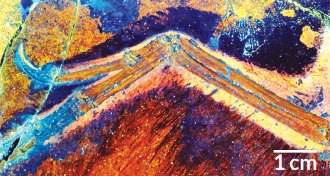 Paleontology
PaleontologyUnder lasers, a feathered dino shows some skin
Laser-stimulated fluorescence reveals detailed images of soft tissue in a feathered dinosaur from 160 million years ago.
-
 Animals
AnimalsShocking stories tell tale of London Zoo’s founding
In The Zoo, Isobel Charman pens a gripping narrative of the London Zoo’s early days, when workers had a hard time keeping animals alive.
By Meghan Rosen -
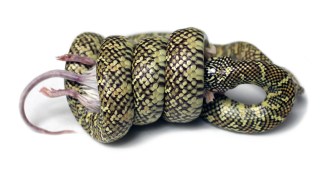 Ecosystems
EcosystemsA king snake’s strength is in its squeeze
King snakes feast on other, larger snakes, perhaps thanks to superior constricting abilities, new research suggests.
-
 Neuroscience
NeuroscienceSmartphones may be changing the way we think
We rely on our digital devices to connect with others and for memory and navigation shortcuts. What is that doing to our brains?
-
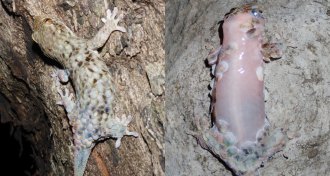 Animals
AnimalsDetachable scales turn this gecko into an escape artist
A new species of gecko evades predators by shedding its scaly armor.
-
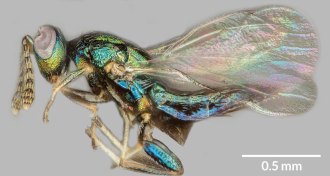 Animals
AnimalsHow one enslaving wasp eats through another
A wasp that forces oaks to grow a gall gets tricked into digging an escape tunnel for its killers.
By Susan Milius -
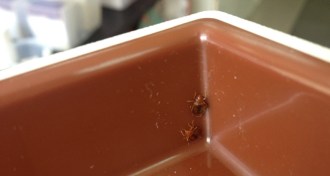 Animals
AnimalsTropical bedbugs outclimb common species
A study of bedbug traps and feet names finds that tropical bedbugs are much better at scaling slippery walls than common bedbugs.
-
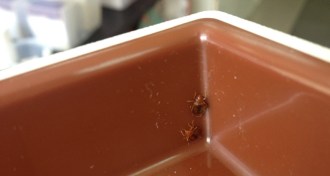 Animals
AnimalsTropical bedbugs outclimb common bedbugs
A study of bedbug traps and feet names finds that tropical bedbugs are much better at scaling slippery walls than common bedbugs.
-
 Neuroscience
NeuroscienceMaking a mistake can put your brain on ‘pause’
When there’s not much time to recover, one error can lead to another.
-
 Genetics
GeneticsHow to grow toxin-free corn
Corn genetically altered to produce specialized molecules may prevent a fungus from tainting it with carcinogenic toxins.
-
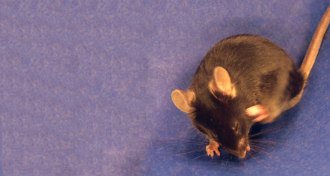 Neuroscience
NeuroscienceScratching is catching in mice
Contagious itching spreads by sight mouse-to-mouse, and scientists have identified brain structures behind the phenomenon.
By Susan Milius